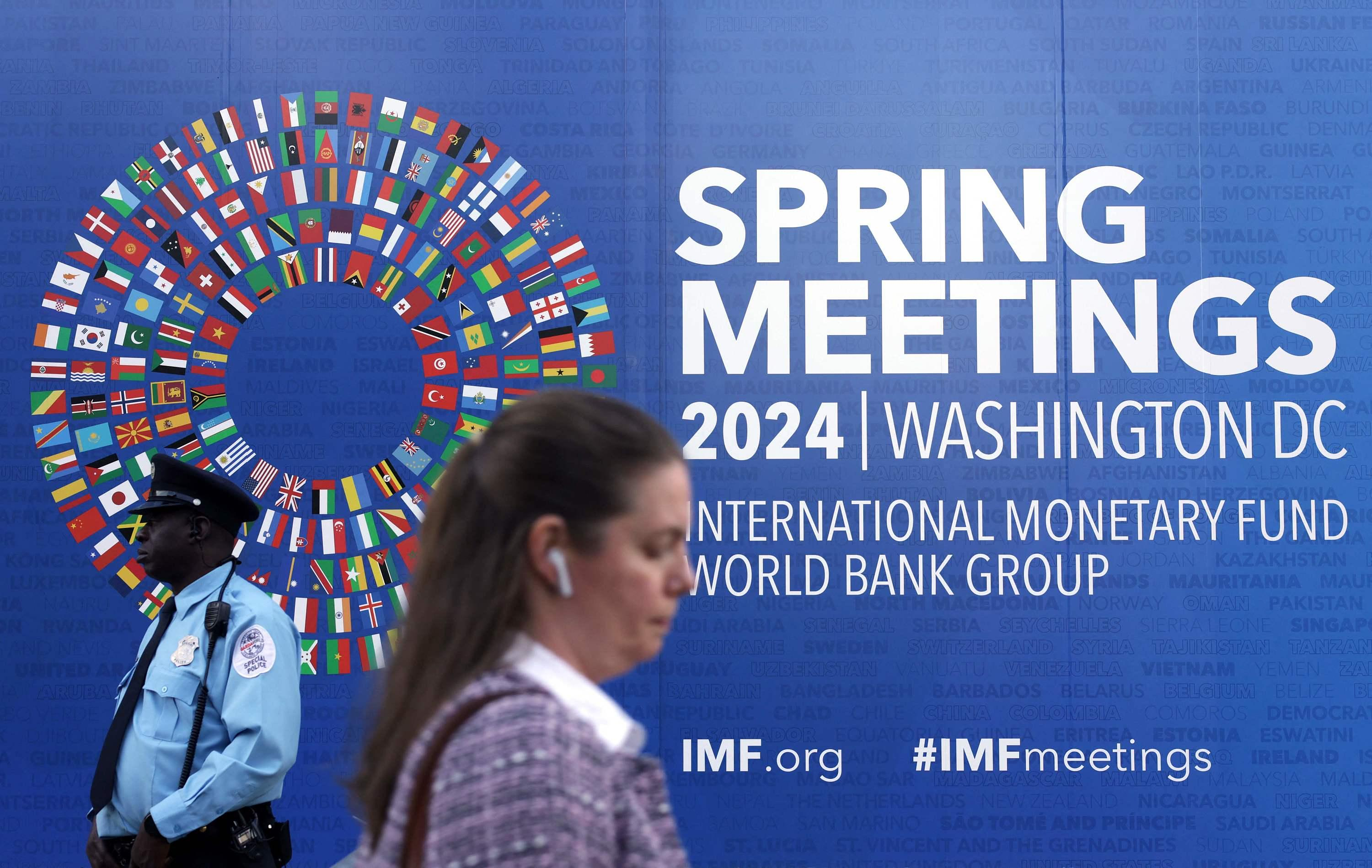The decisive moment of the Federal Council meeting, in which the states discuss the planned citizens' allowance, lasts only a few seconds: "Who agrees to the draft law?" asked the Mayor of Hamburg and current President of the Federal Council Peter Tschentscher (SPD) in the semicircle with the state representatives. "That's the minority. The Federal Council has not approved the law. We are closing this point.” But the struggle for the citizen money promoted by the traffic light coalition is not over – on the contrary.
At the beginning of next week, the mediation committee of the Bundestag and the chamber of states is to meet to find an agreement between the red-green-yellow government coalition and the Union in the Bundestag and the Union-led states. "The informal talks with the CDU and CSU have already begun," it said immediately after the vote of the federal states in circles of the coalition factions.
If the traffic light plan goes according to plan, only one joint result will be announced in the mediation committee in the middle of next week. Then the Bundestag could decide on the citizens' allowance on the following Thursday or Friday - and the chamber of states could follow in the meeting on November 25th. "If we don't make these appointments, we won't get through the citizen's income this year. Then there will be no higher standard rates for benefit recipients from January 1st, ”says the SPD. And that would mean that the end of Hartz IV in 2022, which was mainly pushed by the Social Democrats, would no longer be feasible.
But it doesn't look like it. In the run-up to the votes on citizen income in the Bundestag and Bundesrat, there had been a massive exchange of blows between the coalition and the opposition, some with personal insults. SPD politicians in particular accused the leaders of the CDU and CSU, Friedrich Merz and Markus Söder, of spreading fake news, of lying and of being mentally close to ex-US President Donald Trump.
Merz and Söder had argued that with higher payments per month than before and lower penalties for those who refuse to work, it is no longer worth going to work with the citizen's income. Financially there is hardly any difference to low earners. In return, Union politicians threatened a total blockade of citizen income in the Bundesrat. “We don't need any reform or citizens' income. For us, a continuation of the Hartz rules with higher standard rates for those affected is enough,” said members of the parliamentary group leadership in the Bundestag beforehand.
In fact, the Union has now stopped the citizens' income and thus one of the central projects of the traffic light coalition in the Bundesrat for the time being. The necessary 35 votes in the state chamber and thus the majority were not achieved. Because the federal states with Union participation in the respective state governments unite 39 votes – and they all abstained. However, only one state, Bavaria, explicitly votes against citizen money – and state governments under the leadership of the CDU can be heard: “We will find a compromise in the mediation committee.”
So there is no longer any talk of a total blockade. According to the CDU, one cannot politically afford to reject the citizens' allowance and thus withhold the planned increase in monthly payments of around 50 euros from those receiving basic security. The Union would have liked to vote on the standard rates and the rest of the citizen benefit package in separate procedures to avoid this dilemma. But the traffic light parties prevented that.
Now the CDU and CSU want to wrest as many changes as possible to the Citizens' Income Act from the traffic light. At the beginning of next week, representatives of the Union countries and the parliamentary group will vote on the common line - where compromises are considered possible in this round is strictly confidential. They do not want to give the traffic light coalition partners any insight in advance and weaken the basis for negotiations.
But Florian Herrmann (CSU), head of the Bavarian State Chancellery and Minister of State, sets out the basic line of the Union as follows: "The citizen's income is not social, but unfair. Therefore, the following three adjustment screws must be improved in the mediation process: The state must be able to reduce benefits if work is rejected," said Herrmann WELT. “Whoever has a lot of wealth is not dependent on state support. The protective assets are set too high.” Ultimately, the following must apply: “Those who work must have more money than if they don’t work.”
According to the plans of the traffic light coalition, recipients of basic income should not have to touch their assets for the first two years, during the so-called waiting period, unless it is more than 60,000 euros, plus 30,000 euros for each additional household member. Even moving to a smaller apartment should not be necessary during this time.
The sanctions are designed to start with a six-month “trust period” during which those affected face a reduction in benefits of just ten percent if, for example, an appointment at the job center is missed several times. After that, a reduction of 20 percent should be possible in the event of further breaches of duty. All of this does not go far enough for the Union - however, the amount of the protective assets or the duration of the waiting and trust periods certainly offer opportunities for compromises.
In the Federal Council, citizen income has failed for the time being. The bill for social reform did not get the required majority in a special session. "It is a reform of the unpopular Hartz IV," says Benjamin Höhne, political scientist and party researcher.
Source: WORLD
Sanctions are only "the very last resort in the event of breaches of duty," said Brandenburg's Economics Minister Jörg Steinbach (SPD) in the brief debate in the Bundesrat. Experience has shown that "sanctions hardly motivate people to work with the job centers".
Federal Minister of Labor Hubertus Heil (SPD), who spoke as the cabinet member responsible for the law in the state chamber, defended the citizen's income against the accusation that it was practically introducing an unconditional basic income. Because sanctions are definitely planned. "I am convinced that we should not have an unconditional basic income," said Heil.
Baden-Württemberg's Economics Minister Nicole Hoffmeister-Kraut (CDU) again sharply criticized the citizens' benefit plans in the Bundesrat. But she also said: "It's not about blockades for us." In the mediation committee "we must succeed in coming to a common line".
"Kick-off Politics" is WELT's daily news podcast. The most important topic analyzed by WELT editors and the dates of the day. Subscribe to the podcast on Spotify, Apple Podcasts, Amazon Music or directly via RSS feed.

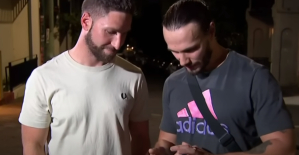 Knife attack in Australia: who are the two French heroes congratulated by Macron?
Knife attack in Australia: who are the two French heroes congratulated by Macron?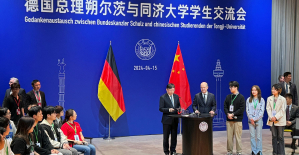 Faced with an anxious Chinese student, Olaf Scholz assures that not everyone smokes cannabis in Germany
Faced with an anxious Chinese student, Olaf Scholz assures that not everyone smokes cannabis in Germany In the Solomon Islands, legislative elections crucial for security in the Pacific
In the Solomon Islands, legislative elections crucial for security in the Pacific Sudan ravaged by a year of war
Sudan ravaged by a year of war Covid-19: everything you need to know about the new vaccination campaign which is starting
Covid-19: everything you need to know about the new vaccination campaign which is starting The best laptops of the moment boast artificial intelligence
The best laptops of the moment boast artificial intelligence Amazon invests 700 million in robotizing its warehouses in Europe
Amazon invests 700 million in robotizing its warehouses in Europe Inflation rises to 3.2% in March due to gasoline and electricity bills
Inflation rises to 3.2% in March due to gasoline and electricity bills Olympic Games-2024: which professions are likely to strike during the competition?
Olympic Games-2024: which professions are likely to strike during the competition? Pizzas sold throughout France recalled for “possible presence” of glass debris
Pizzas sold throughout France recalled for “possible presence” of glass debris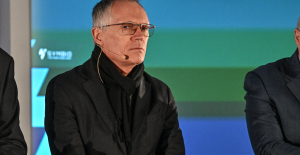 “As for a football player, there is a contract”: Carlos Tavares defends his remuneration of 36.5 million euros
“As for a football player, there is a contract”: Carlos Tavares defends his remuneration of 36.5 million euros Stellantis: shareholders validate the controversial remuneration of Carlos Tavares
Stellantis: shareholders validate the controversial remuneration of Carlos Tavares Dune 3 will be the last film of Denis Villeneuve's adaptation
Dune 3 will be the last film of Denis Villeneuve's adaptation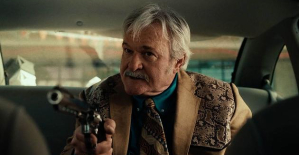 Shane Atkinson, humble disciple of the Coen brothers
Shane Atkinson, humble disciple of the Coen brothers Outcry from publishers against the authorization of advertising for books on television
Outcry from publishers against the authorization of advertising for books on television Eddy de Pretto celebrates his “last party too many” at the Olympia
Eddy de Pretto celebrates his “last party too many” at the Olympia Skoda Kodiaq 2024: a 'beast' plug-in hybrid SUV
Skoda Kodiaq 2024: a 'beast' plug-in hybrid SUV Tesla launches a new Model Y with 600 km of autonomy at a "more accessible price"
Tesla launches a new Model Y with 600 km of autonomy at a "more accessible price" The 10 best-selling cars in March 2024 in Spain: sales fall due to Easter
The 10 best-selling cars in March 2024 in Spain: sales fall due to Easter A private jet company buys more than 100 flying cars
A private jet company buys more than 100 flying cars This is how housing prices have changed in Spain in the last decade
This is how housing prices have changed in Spain in the last decade The home mortgage firm drops 10% in January and interest soars to 3.46%
The home mortgage firm drops 10% in January and interest soars to 3.46% The jewel of the Rocío de Nagüeles urbanization: a dream villa in Marbella
The jewel of the Rocío de Nagüeles urbanization: a dream villa in Marbella Rental prices grow by 7.3% in February: where does it go up and where does it go down?
Rental prices grow by 7.3% in February: where does it go up and where does it go down? Europeans: the schedule of debates to follow between now and June 9
Europeans: the schedule of debates to follow between now and June 9 Europeans: “In France, there is a left and there is a right,” assures Bellamy
Europeans: “In France, there is a left and there is a right,” assures Bellamy During the night of the economy, the right points out the budgetary flaws of the macronie
During the night of the economy, the right points out the budgetary flaws of the macronie Europeans: Glucksmann denounces “Emmanuel Macron’s failure” in the face of Bardella’s success
Europeans: Glucksmann denounces “Emmanuel Macron’s failure” in the face of Bardella’s success These French cities that will boycott the World Cup in Qatar
These French cities that will boycott the World Cup in Qatar Dortmund-Atlético: two months before the Euro, Griezmann warms up the engine
Dortmund-Atlético: two months before the Euro, Griezmann warms up the engine Football: Bernd Hölzenbein, 1974 world champion, died at 78
Football: Bernd Hölzenbein, 1974 world champion, died at 78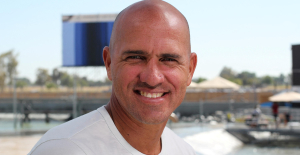 'Everything comes to an end': Surfing legend Kelly Slater moves closer to retirement
'Everything comes to an end': Surfing legend Kelly Slater moves closer to retirement Athletics: the victory of a transgender athlete causes controversy in the United States
Athletics: the victory of a transgender athlete causes controversy in the United States




